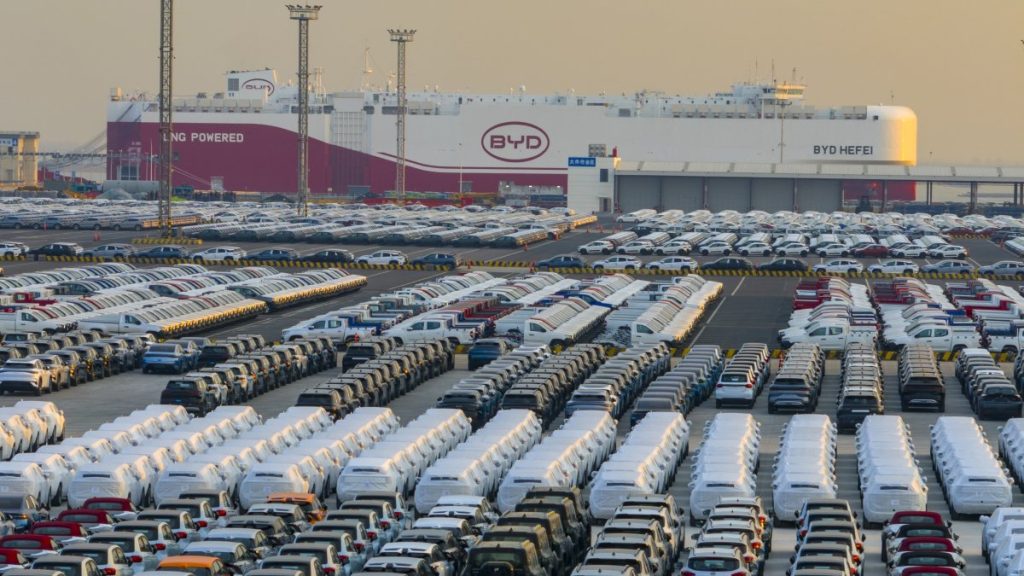The United States is getting ready for a change in leadership as President-elect Donald J. Trump prepares to take office on Jan. 20, 2025. Although he has not officially assumed the presidency yet, his plans are already clear. One of his main priorities appears to be the automotive industry, especially electric vehicles. This is because China, his longstanding rival on the global stage, has quickly become the world leader in EV production.
China’s rise in EV production presents a significant challenge to U.S. policy and economic strategy. By dominating this key industry, China is positioning itself at the forefront of global technological and economic leadership. Rather than engaging in direct confrontations through trade barriers or tariffs, China has taken a more strategic approach. It is methodically filling gaps in global supply chains, creating dependencies that restrict the U.S.’s ability to act independently while simultaneously solidifying its own influence in critical sectors.
Race led by China
The automotive industry is undergoing an unprecedented transformation, reshaping a sector that employs 5% of the global workforce and generates revenue surpassing France’s gross domestic product (GDP). This shift, driven by the rise of EVs, is fundamentally changing the industry – from internal combustion engines to batteries and software.
Between 2018 and 2023, China produced over 13 million electric cars, accounting for more than a third of global car manufacturing. Germany followed with nearly 4.5 million, while the U.S. produced only 4.1 million. Japan, France and South Korea lagged significantly, with production figures of 1.5 million, 1.3 million and 1.2 million, respectively. Meanwhile, sales of battery-electric vehicles in Europe surged by 37% in 2023, capturing a market share of 14.6%.
China’s dominance is no accident. Strategic investments in raw materials, battery technologies and infrastructure have created an unmatched EV ecosystem. As a result, production is shifting away from traditional hubs like the U.S. and Europe to China and South Korea. This transformation raises critical questions about the future of the automotive industry. The U.S. and its allies must adapt to the shifting landscape or risk losing their historic leadership. The EV market’s growth is undeniable, but so is the urgency of Western nations to compete in an industry that is rapidly evolving. The stakes are high and the rules of the game are being rewritten – China, for now, is leading the charge.
‘Chess’ vs. ‘Go’
China’s foreign policy operates on a fundamentally different plane from that of the U.S., one that resembles the centuries-old strategy game Go. Unlike chess, where opponents seek direct confrontation and victory by capturing the king, Go focuses on gaining incremental advantages and surrounding opponents over time. China’s foreign policy reflects this subtlety, aiming for coexistence rather than open rivalry, often positioning itself in ways that limit the U.S.’s ability to make decisive moves.
Under U.S. President Joe Biden, this Go-like approach yielded results. While disagreements persisted, both nations worked to de-escalate tensions, maintaining a delicate balance. However, this equilibrium faces a potential upheaval. Former President Trump, eyeing a return to power, appears poised to reinstate his combative stance on Chinese influence.
Trump’s policy approach during his first term was Hamiltonian in its essence: aggressive, unilateral and focused on preserving U.S. dominance. His administration waged a trade war, scrutinized Chinese investments and targeted technology transfers to counter China’s global ambitions. If Trump returns to the White House, his strategy would likely mirror chess – targeted and confrontational, seeking to upend China’s slow, calculated encirclement. This looming shift underscores a clash not just of policies but of worldviews. As China plays Go, seeking to entrench itself subtly in regions like South America and Africa, Trump’s chessboard strategies may push for overt conflict, leaving little room for coexistence. The question remains: which game will prevail in shaping the 21st-century geopolitical landscape?

Investment caught in between
Chinese investment in Mexico is growing, with companies like ZC Rubber and Leoch expanding in industrial parks like Alianza, leveraging Mexico’s proximity to the U.S. and access via the USMCA. While official data shows modest investment – $450 million in 2022 – external research reveals a more significant presence, with Chinese firms occupying 7% of absorbed industrial capacity since 2020. This has raised concerns in Washington and Ottawa about China circumventing tariffs and deepening its supply chains.
BYD, a leading Chinese automaker, has introduced models like the Han EV sedan and Tang EV SUV to the Mexican market. However, following Donald Trump’s presidential election victory, plans for a BYD factory in Mexico are uncertain due to potential U.S. tariffs. Trump’s administration may reimpose the threat of 25% tariffs on Mexican imports, leveraging this as a bargaining chip to curb Chinese activities in Mexico. He could also push for stricter enforcement of the USMCA’s rules of origin, which currently require 75% regional content in automotive manufacturing. Analysts suggest these policies could significantly disrupt the $1 billion annual inflow of Chinese investments into sectors like EVs and batteries. Despite these challenges, Chinese EV makers continue influencing Mexico’s automotive landscape, raising concerns about trade dynamics and market access.
Beyond punitive measures, Trump may incentivize U.S. companies to repatriate production through tax breaks and subsidies. Forecasts suggest this approach could drive a 15% shift in automotive manufacturing back to the U.S. by 2028, simultaneously undermining China’s influence while bolstering American industry.
Mexico’s President Claudia Sheinbaum now faces a delicate balancing act: fostering vital foreign investment from China while maintaining a cooperative relationship with a U.S. administration intent on reshaping the regional trade landscape. The stage is set for a contentious new chapter in North American geopolitics.


